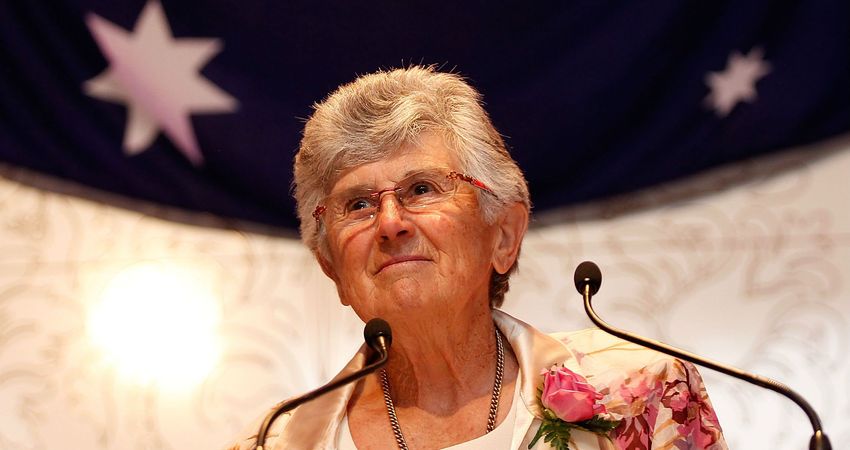Legacy Spotlight: Judy Dalton

Armed with a serve-and-volley style in the best Aussie traditions, Judy Tegart Dalton achieved the career Grand Slam in women’s doubles, capturing five of her eight majors with Margaret Court, and won the mixed title at the Australian Open in 1966.
In singles, she stormed to the final at Wimbledon in 1968, upsetting Court and Nancy Richey before succumbing to Billie Jean King – but look at the photos and it’s hard to spot the victor.
In September 1970, at the age of 32, she was runner-up to Rosie Casals at the Virginia Slims Invitational in Houston, the tournament where the Original 9 made their stand for equality and she kept playing until the 1977 Australian Open, when she retired at 40.
In 2019 she was made a Member of the Order of Australia in the Australia Day Honors for “significant service to tennis as a player, to equality for women in sport, and to sporting foundations.”
Read more: Bustle.com on the History of the WTA's Original 9
wtatennis.com: How did you get in to tennis?
Judy Dalton: My father was a good player, and he started teaching me when I was five years old.
At what moment did you know you loved playing tennis and wanted to choose it as a career?
JD: I’ve always loved playing tennis. I played throughout my school years. I changed to basketball for a while but went back to tennis after being asked to be part of the Australian basketball team. I realized that tennis was my passion, not basketball. Of course, the path wasn’t as obvious back then, and before payments became more regular with the Virginia Slims Circuit I worked as an accountant when I wasn’t traveling to tournaments.
How would you describe your style of play? What were your strengths?
JD: I have an attacking style, using the serve and volley technique. My strength is my serve. This contributed to my success as a doubles player.
Did you have any personal rituals when playing tennis?
JD: I always packed my tennis bag the night before, in case I forgot something.
What was your favorite tournament to play?
JD: Wimbledon, of course, because it is the home of tennis and it’s played on grass, my favorite surface. There is always a magical atmosphere and it’s a very special place.
Describe an obstacle you were able to overcome during your tennis career.
JD: As a member of the Original 9, I challenged the status quo which said that women were not as valued as professional tennis players and worked to improve gender equality. The politicking in tennis was really hard, but when we signed the $1 contracts with Gladys Heldman we knew it was the right thing to do.
Who do you look up to, and why?
JD: Suzanne Lenglen – she was a great played and always stayed true to herself. She was both a tennis player and an international celebrity. She would go through tournaments without losing a game. If you don’t know who she was – look her up!
What have you been up to since retiring?
JD: After having a family with my late husband David – we had a daughter, Samantha and son, David and two granddaughters, Sophie and Abby – I coached both teams and individuals, including the Australian Fed Cup team, which meant a lot to me having been on two winning squads. I was involved in junior tennis development as the President of the Australian Fed Cup Foundation for 30 years, and only recently stepped down from this role. I have also been active in the media, commenting on women’s tennis in Australia and the UK. After my husband, David, passed away in 2009 I left our farm in southwestern Victoria and now live in Melbourne.
What advice would you share with your younger self or someone just starting out in the sport?
JD: If you want to make tennis your career you have to be prepared to work hard and make sacrifices. I will be a long road, and there will be challenging times along the way, but if you keep going and believe in yourself, you’ll get there and it will all be worth it. Don’t lose your passion for the game and never give up.
How has your life been impacted by tennis?
JD: It’s given me the opportunity to travel the world and meet interesting people. It’s also given me lifelong friendships with my fellow players.







